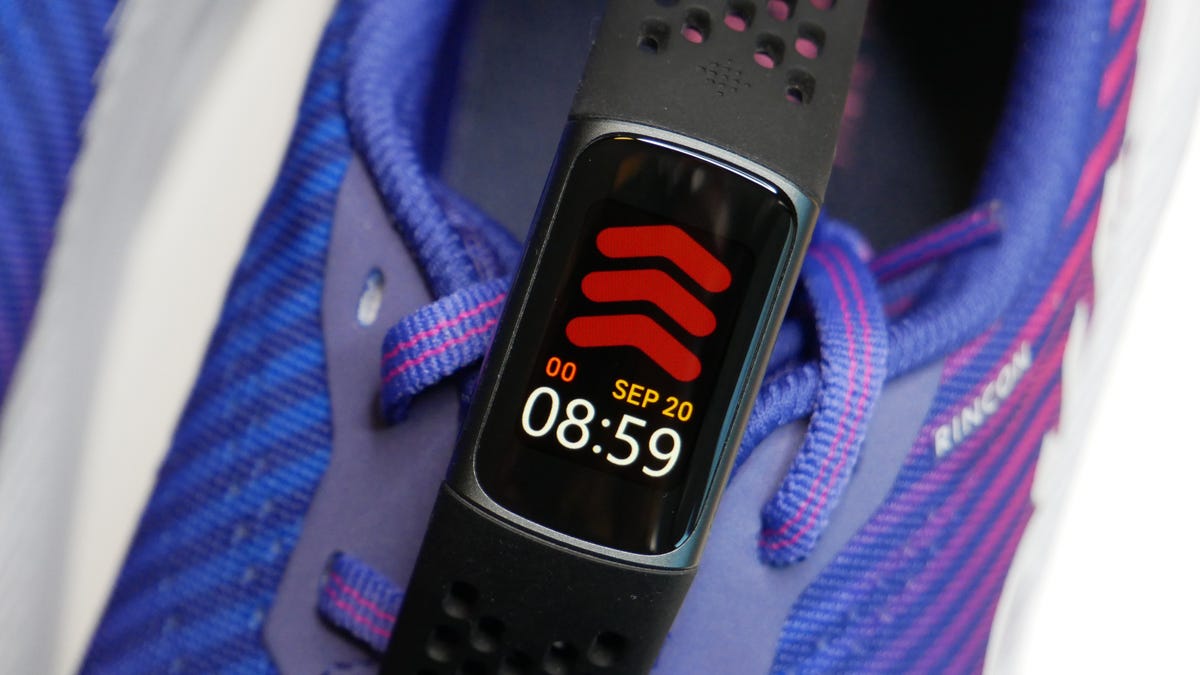Fitbit's AFib Detection Feature to Start Rolling Out
The feature will be available on nine different Fitbits in the coming weeks.

The Fitbit Charge 5.
Google announced earlier this month that its Fitbit was granted clearance from the US Food and Drug Administration for its atrial fibrillation detection algorithm. Now, Fitbit owners should be on the lookout for the new feature.
In the coming weeks, the algorithm will be rolling out across nine Fitbit devices, Google confirmed. Charge 5, Versa 3, Sense, Versa 2, Charge 4, Charge 3, Luxe, Inspire 2 and Versa Lite are all compatible with the algorithm which can point to signs of AFib.
The algorithm works by passively assessing your heartbeat rhythm. If it comes across anything that suggests AFib -- an irregular and often rapid heartbeat -- it will then alert you through the Irregular Heart Rhythm Notifications feature.
Google earned clearance for the AFib-detecting technology partly due to a 2020 Heart Study that monitored over 455,000 participants for five months. The study found that Fitbit detected and correctly identified AFib episodes 98% of the time when compared with ECG patch monitors.
Fitbit's ECG app already offers a way to periodically check your heart rhythm, but the new AFib detection feature will provide a more consistent, always-on method of monitoring. This may be especially important for monitoring during sleep, as AFib is best detected when the body is at rest, according to Google's clearance announcement.
AFib affects over 33 million people worldwide, according to the tech giant. It can be difficult to detect and can increase a person's risk of stroke.
Read more: How to Survive a Heart Attack



